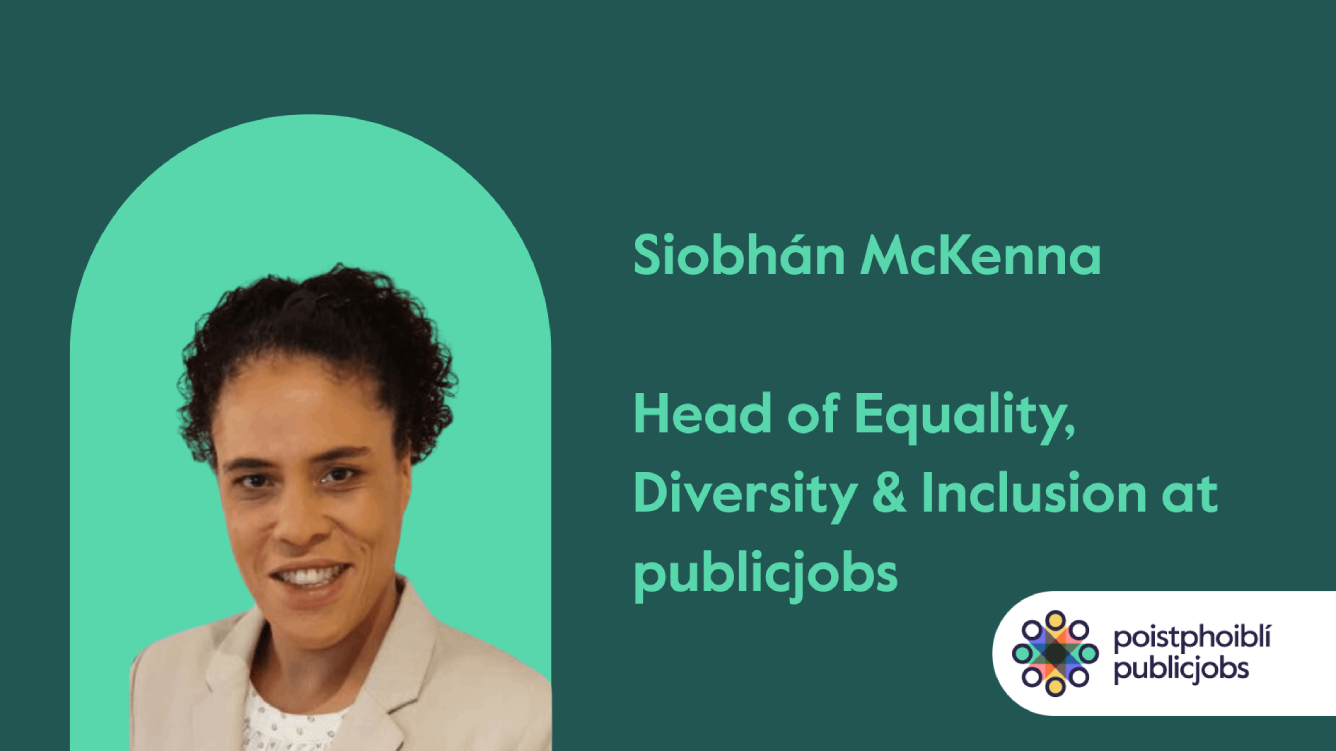
We recently contributed to an Irish Times Special Report which highlighted how physical adaptations, assistive technology and flexible hours can support disabled employees in the workplace. Siobhán McKenna, our Head of ED&I at publicjobs, provided her expertise and knowledge on inclusive recruitment and best practice in workplace equality, diversity and inclusion.
“Disabled people in Ireland continue to face significant gaps in employment compared to people who don’t have a disability. Ireland comes fourth last out of 28 EU countries when it comes to the number of disabled people in employment, we need to do better. In publicjobs, we are focused on ensuring that disabled candidates applying for jobs do not face any barriers to accessing and securing roles in the civil and public sectors”
Siobhán McKenna, Head of ED&I at the publicjobs.
In 2016, Irish Census data showed that the employment rate of disabled people was about half of the rate for those without disabilities (36.5 per cent versus 72.8 per cent). Disabled people in Ireland continue to face significant gaps in employment, compared to people who don’t have a disability.
A key element of inclusive workplaces is the reasonable accommodations, or support, provided to disabled employees to do their jobs. These accommodations can involve physically adapting the work premises or the equipment. For example, installing loop systems for the hard of hearing or wheelchair ramps, automatic doorways, accessible bathrooms, handrails and stairlifts for those with mobility challenges.
Increasingly, workplace reasonable accommodations are of a technical nature, such as adapted computers, speech-to-text software and speech communication devices. Remote working has necessitated increased reliance on technology for us all and assistive technology, in particular, for disabled people.
Other non-physical accommodations include offering flexible working times, providing training or other supports that might help; adjusting an employee’s workplace attendance hours or allowing them to work from home; or assigning an employee certain tasks and substituting others for equivalent duties in consultation with the employee.
“Covid-19 has given us a chance to find a hybrid working model that supports diversity and inclusion. We have an opportunity to harness the technology that we have all learned to use over last 18 months, to create inclusive workplaces, remote or in-person”
Shirley Comerford, Chief Executive of publicjobs.
